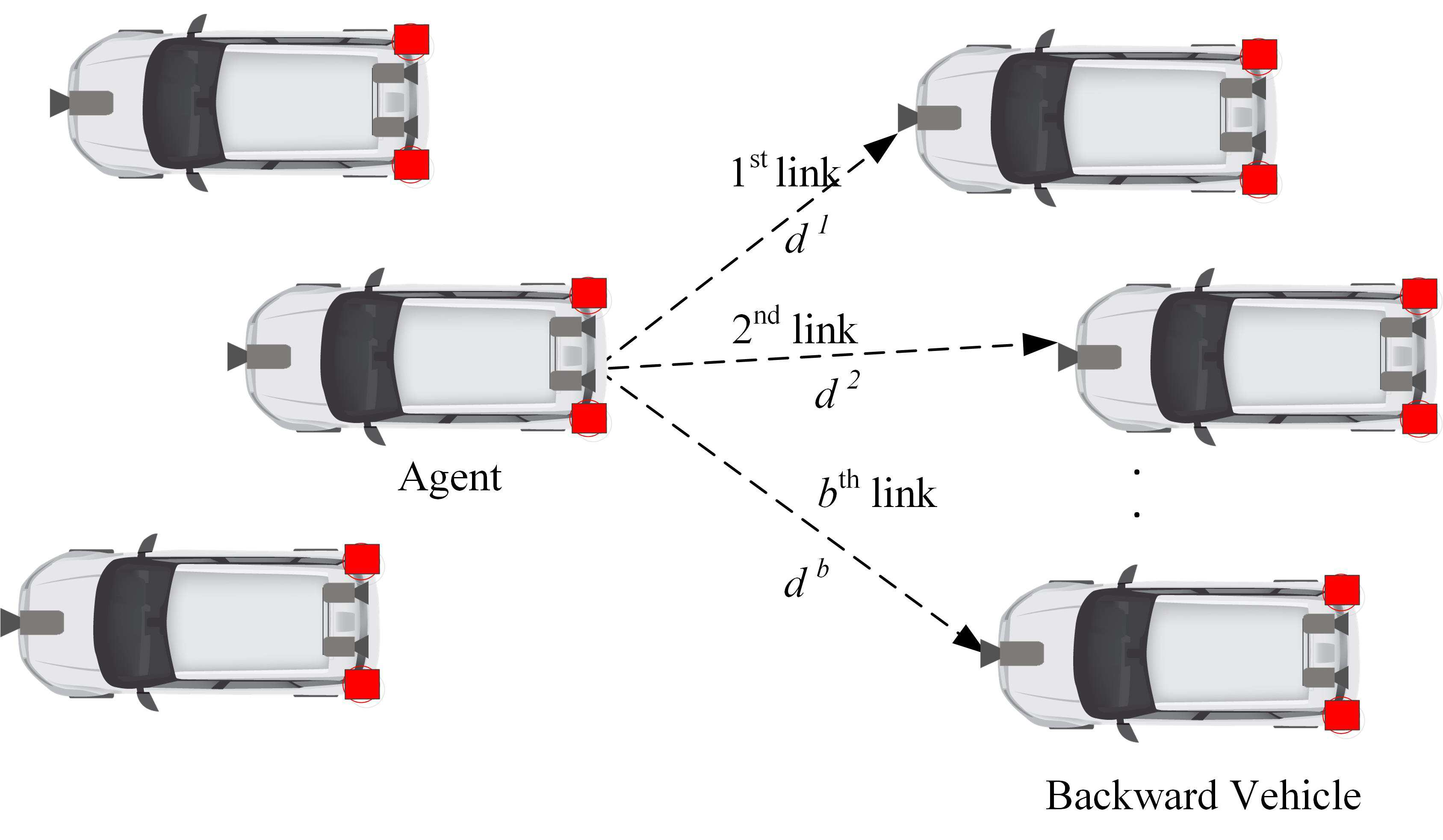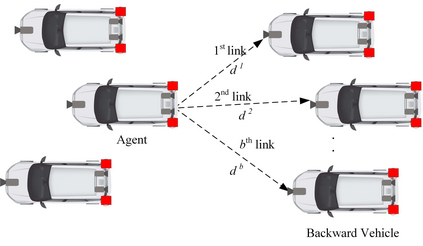Optical camera communications (OCC) has emerged as a key enabling technology for the seamless operation of future autonomous vehicles. In this paper, we introduce a spectral efficiency optimization approach in vehicular OCC. Specifically, we aim at optimally adapting the modulation order and the relative speed while respecting bit error rate and latency constraints. As the optimization problem is NP-hard problem, we model the optimization problem as a Markov decision process (MDP) to enable the use of solutions that can be applied online. We then relaxed the constrained problem by employing Lagrange relaxation approach before solving it by multi-agent deep reinforcement learning (DRL). We verify the performance of our proposed scheme through extensive simulations and compare it with various variants of our approach and a random method. The evaluation shows that our system achieves significantly higher sum spectral efficiency compared to schemes under comparison.
翻译:光学照相机通信(OCC)已成为未来自主车辆无缝运行的关键赋能技术。在本文中,我们引入了对车辆操作中心的光谱效率优化方法。具体地说,我们的目标是优化调制顺序和相对速度,同时尊重小误差率和延迟度限制。由于优化问题是NP硬问题,我们将优化问题作为马尔科夫决策程序(MDP)来模拟,以便能够使用可在网上应用的解决方案。然后,我们通过多试剂深度加固学习(DRL)来解决受限制的问题。我们通过广泛的模拟来核查我们提出的计划的执行情况,并将它与我们的方法的各种变式和随机方法进行比较。评估表明,我们的系统与比较中的各种计划相比,其光谱效率要高得多。







